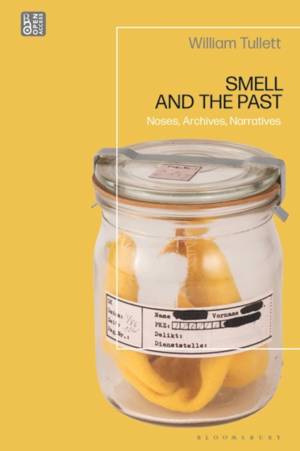
Bedankt voor het vertrouwen het afgelopen jaar! Om jou te bedanken bieden we GRATIS verzending (in België) aan op alles gedurende de hele maand januari.
- Afhalen na 1 uur in een winkel met voorraad
- In januari gratis thuislevering in België
- Ruim aanbod met 7 miljoen producten
Bedankt voor het vertrouwen het afgelopen jaar! Om jou te bedanken bieden we GRATIS verzending (in België) aan op alles gedurende de hele maand januari.
- Afhalen na 1 uur in een winkel met voorraad
- In januari gratis thuislevering in België
- Ruim aanbod met 7 miljoen producten
Zoeken
€ 195,45
+ 390 punten
Omschrijving
What if researchers interested in 'the past' used their noses? This open access book makes the case for a more imaginatively interdisciplinary approach to sensory heritage and history, arguing that we can and should engage our noses as a research tool for articulating the past.
Assessing how both we and our ancestors approach, understand and conceptualise smell, Tullett shows how archives can be 're-odorized' to uncover narratives that are only implicit in or obscured by the historical record. From perfume libraries to organic compounds emitted by historical objects, this book acts as a guide for employing our olfactory senses when researching and studying history in order to understand and communicate the past more fully. Employing 'olfactory figures' examples, Smell and the Past shows how historical narratives and arguments can be found through a structured olfactory experience, and demonstrates how our understanding of the past and its relationship with the present is enriched by opening our minds and using our noses.
The ebook editions of this book are available open access under a CC BY-NC-ND 4.0 licence on bloomsburycollections.com. Open access was funded by the European Union's Horizon 2020 program project ODEUROPA under grant agreement number 101004469.
Assessing how both we and our ancestors approach, understand and conceptualise smell, Tullett shows how archives can be 're-odorized' to uncover narratives that are only implicit in or obscured by the historical record. From perfume libraries to organic compounds emitted by historical objects, this book acts as a guide for employing our olfactory senses when researching and studying history in order to understand and communicate the past more fully. Employing 'olfactory figures' examples, Smell and the Past shows how historical narratives and arguments can be found through a structured olfactory experience, and demonstrates how our understanding of the past and its relationship with the present is enriched by opening our minds and using our noses.
The ebook editions of this book are available open access under a CC BY-NC-ND 4.0 licence on bloomsburycollections.com. Open access was funded by the European Union's Horizon 2020 program project ODEUROPA under grant agreement number 101004469.
Specificaties
Betrokkenen
- Auteur(s):
- Uitgeverij:
Inhoud
- Aantal bladzijden:
- 160
- Taal:
- Engels
Eigenschappen
- Productcode (EAN):
- 9781350367524
- Verschijningsdatum:
- 4/05/2023
- Uitvoering:
- Hardcover
- Formaat:
- Genaaid
- Afmetingen:
- 156 mm x 234 mm
- Gewicht:
- 399 g

Alleen bij Standaard Boekhandel
+ 390 punten op je klantenkaart van Standaard Boekhandel
Beoordelingen
We publiceren alleen reviews die voldoen aan de voorwaarden voor reviews. Bekijk onze voorwaarden voor reviews.









